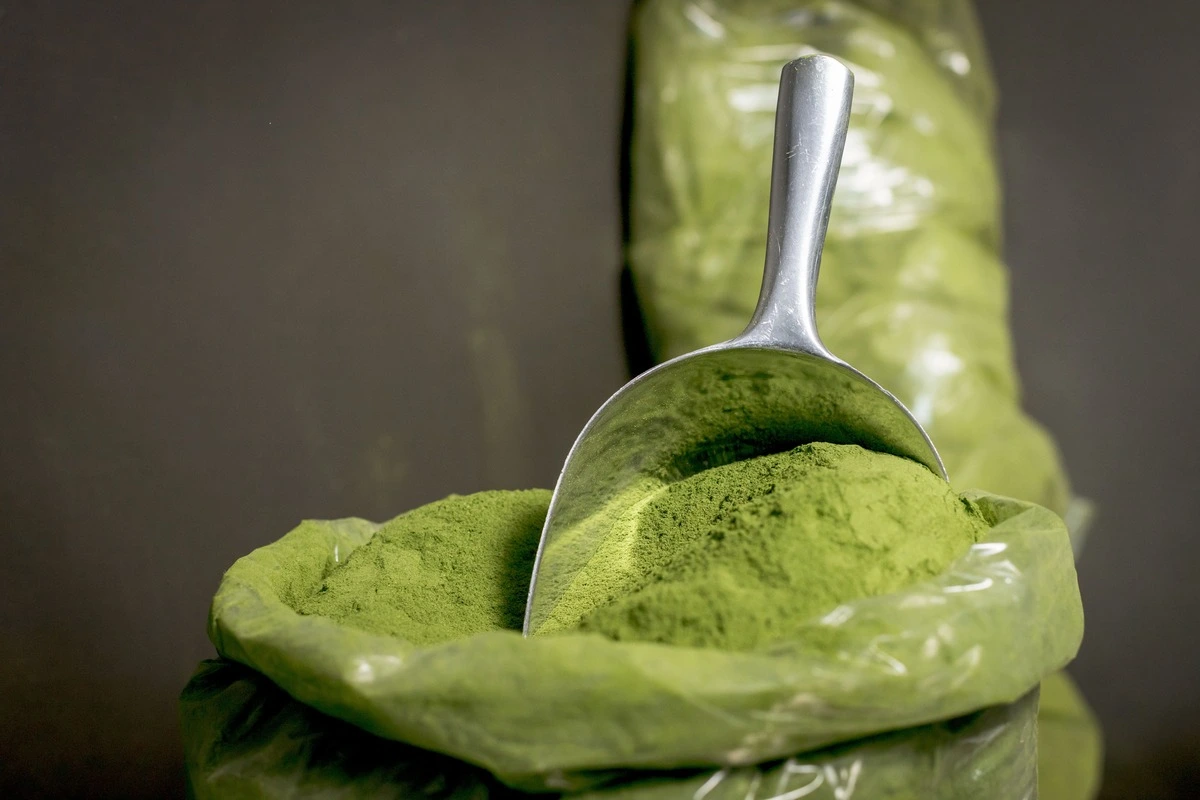Moringa powder has been linked to several potential health benefits due to its rich nutritional profile. Keep in mind that although these benefits are supported by some studies, more research is often needed to establish conclusive evidence. Here are some potential benefits of Moringa powder:
Rich in nutrients:
Moringa powder is a powerhouse of nutrients, containing significant amounts of vitamins A, C and E, as well as minerals such as calcium, potassium and iron. It also provides essential amino acids, making it a valuable addition to a balanced diet.
Antioxidant Properties:
Moringa is rich in antioxidants like quercetin, chlorogenic acid and beta-carotene. These antioxidants help neutralize free radicals in the body, potentially reducing oxidative stress and inflammation.
Anti-inflammatory effect:
Some studies suggest that compounds in moringa, such as isothiocyanates, may have anti-inflammatory properties. These properties may contribute to reducing inflammation in the body.
Lowering blood sugar levels:
There is some evidence to suggest that moringa may help lower blood sugar levels. This effect is due to certain compounds that may improve insulin function and reduce insulin resistance.
Cholesterol Management:
Moringa may have a positive effect on the lipid profile, helping to reduce cholesterol levels. It can be beneficial for heart health by reducing the risk of heart diseases.
Blood pressure regulation:
Some studies indicate that moringa may have mild hypotensive (blood pressure-lowering) effects, potentially contributing to better blood pressure regulation.
Antimicrobial Properties:
Moringa has demonstrated antimicrobial and antibacterial properties in some studies, suggesting it may help combat infections and support overall immune health.
Support for brain health:
The antioxidant and neuroprotective properties present in moringa may have positive effects on brain health, potentially protecting against neurodegenerative diseases.
Anti-Cancer Potential:
Some research suggests that moringa extract may have anti-cancer properties, but more study is needed to fully understand the extent of its potential in cancer prevention or treatment.
It is important to note that while Moringa powder offers a variety of potential health benefits, individual reactions may vary, and it is important to include it in a balanced diet. If you have any pre-existing health issues or concerns, it is advisable to consult a health care professional before adding Moringa or any new supplement to your daily routine.
Benefits of Moringa For Men
Moringa, also often called Moringa oleifera, is a plant known for its nutritional and potential health benefits. Although research is ongoing, there are several aspects of Moringa that may be particularly beneficial for men:
1. Rich in nutrients: Moringa leaves are rich in essential nutrients, including vitamins (like A, C, and E), minerals (like calcium and potassium), and proteins. These nutrients are important for overall health and well-being.

2. Prostate Health: Some studies suggest that Moringa may have positive effects on prostate health. The plant contains compounds with potential anti-inflammatory and antioxidant properties, which may be beneficial for maintaining prostate health.
3. Anti-inflammatory properties: Moringa has been studied for its anti-inflammatory effects. Chronic inflammation is linked to a variety of health conditions, and reducing inflammation may contribute to overall well-being.
4. Antioxidant effects: Moringa is rich in antioxidants, including quercetin, chlorogenic acid, and beta-carotene. Antioxidants help combat oxidative stress in the body, which is linked to aging and various health problems.
5. Libido and sexual health: Some traditional uses of moringa suggest its possible role in supporting libido and sexual health. However, more research is needed in this specific area.
6. Energy and Vitality: Moringa’s nutrient density, including its high content of vitamins and minerals, may contribute to increased energy levels and overall vitality.
7. Blood Sugar Regulation: Moringa has been studied for its ability to regulate blood sugar levels. Maintaining healthy blood sugar levels is important to prevent conditions like diabetes.
8. Cholesterol management: Some research suggests that Moringa may have a positive effect on lipid profiles, helping to manage cholesterol levels in the body.
It is important to note that while Moringa promises various health benefits, individual reactions may vary. Like any supplement, it is advisable to consult a health care professional before adding Moringa to your daily routine, especially if you have any pre-existing health conditions or are taking medications. Additionally, obtaining Moringa from reputable sources ensures the quality and safety of the product.

















